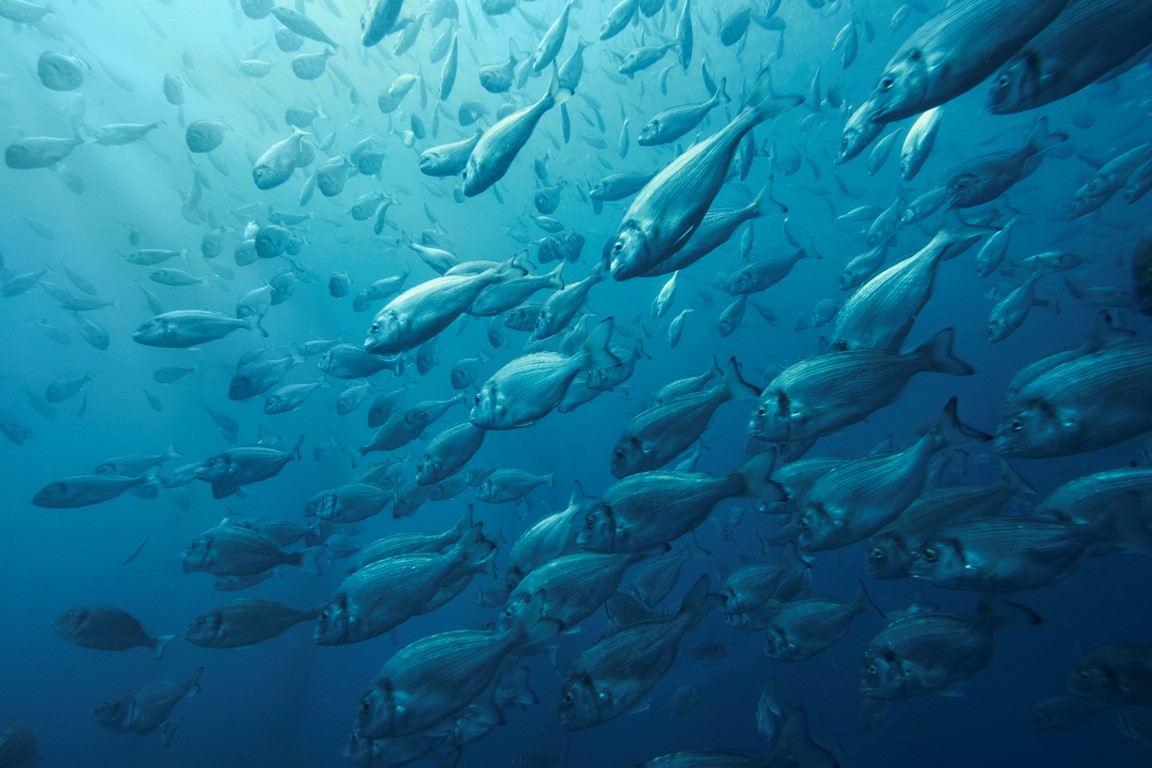
Aquaculture, and especially fish farming, is one of the most important branches of the primary animal production sector in Spain, which is also of great interest for Greek exports.
As noted in a survey by the Economic and Commercial Affairs office of the Greek embassy in Madrid, Spain ranks second in the EU. after Portugal and in sixth place worldwide based on fish consumption, which pushes it to import to meet the high domestic demand and among its main suppliers are both European and other countries.
Precisely, for this reason, it is estimated that it is a vehicle for the further growth of bilateral trade relations with Greece, whose fish products already have a strong presence and connections in the Spanish market, despite local production, and are known to the Spanish consumer public.
It is noted that the competitiveness of the Spanish fish sector is linked to investments in research and innovation, in order to create new differentiated products, improved production, packaging, distribution or consumption processes. So, as noted in the relevant document of our embassy, in order to stand and grow in the Spanish market, Greek fish should be competitive, i.e. combining healthy nutritional characteristics, quality with high nutritional value and low cost, so that they can compete with imports from cheaper third countries, and seem to be “winning over” the market in recent years.
According to analysts, it is characteristic of the consumption behavior of Spaniards that they are increasingly looking for convenient packaging options in smaller formats. Tray-packed fresh fish and seafood are gaining shelf space in retail chains, and producers are responding to growth opportunities for high-demand tray packaged fish and seafood categories and investing in installing new packaging lines.
At the same time, the Spanish fish farming industry considers that cheap and relatively low quality fish from third countries are rapidly gaining increasing access to the Spanish market.
As far as Greece is concerned, Spain is one of the important suppliers of fishing and aquaculture products, but also one of the most important export destinations as Greek exports to the Spanish market remain the second most important in terms of absorption in terms of value of Greek exports , after Italy and ahead of France, with an export value of 219.45 million euros in 2022 (Hellenic Statistical Authority-ELSTAT data).
The value of Spanish exports to Greece is of the order of 79.33 million euros in 2022 (ELSTAT data).
According to data from the Spanish Ministry of Industry, Trade and Tourism (DataComex) for 2022, on the Spanish side, Greek fish products are in 13th place in terms of Spain’s total imports from Greece and in 5th place in terms of the largest European suppliers of Spain. On the other hand, Greece is the 10th largest market for Spanish fish and the 5th largest European customer of Spanish fish exports.
According to Greek data (EL.STAT.), the bilateral trade balance has been in favor of Greece for a number of years and for 2022 this amounted to 140.12 million euros. Greek exports to the Spanish market mainly concern fresh fish, which in 2022 constituted 93% of the total value of Greek exports. Crustaceans represented 4% of Greek exports to Spain in 2022. Accordingly, Greek imports from Spain in 2022 mainly concerned molluscs (40.4%), edible and fresh fish (14.4%), frozen fish (13.5%), canned fish (9.4%) and crustaceans (8.2%).
Competition analysis in Spanish fish imports 2022
In more detail, based on data from the Spanish Ministry of Industry, Trade and Tourism (DataComex) in the category of fresh fish, our country holds a 16.4% share in quantities, occupying second place behind France (18.2% share ) and the third place in values, behind Sweden and France, with exports of 198.77 million euros, followed by Norway, Portugal and Morocco.
In the category of frozen fish, the largest share in quantities is held by Morocco (12.3%), followed by Portugal, Seychelles and the Netherlands. Greece in the category of frozen fish had in 2022 exports worth 8.02 million euros and a quantity of 1,254 tons, with a share of 0.4% of the Spanish market.
In the category of fish fillets, Namibia has the largest share (18.1%), followed by China, the USA and Iceland. Greece in the fish fillet category, in 2022, had exports worth 3.48 million euros representing 374 tons, with a share of 0.2% of the Spanish market.
In the category of dried and salted fish, the largest share in quantities in 2022 is held by Iceland (18.5%), followed by the Faroe Islands, Norway and the Netherlands. Greece in the category of dried / salted fish had in 2022 exports to Spain worth 195.2 thousand euros and a quantity of 25 tons, with a share of 0.1% of the Spanish market.
In the category of shellfish, the largest share in quantities is held by Ecuador (31.2%), followed by Argentina (23.9%), as well as China, Portugal and Venezuela with smaller shares. In the category of shellfish, Greece, in 2022, had exports to Spain with a value of 8.56 million euros and a quantity of 1,628 tons, with a share of 0.8% of the Spanish market.
In the category of molluscs, the largest share in quantities is held by the Falkland Islands (16.7%) and Morocco (16.3%), followed by Peru (12.6%). Greece in the category of molluscs had in 2022 exports to Spain with a value of 1.16 million euros and a quantity of 483 tons, with a share of 0.1% of the Spanish market.
In the category of canned fish, the largest share in quantities is held by Ecuador (31.8%), followed by China (11.7%). Greece in the category of canned fish had in 2022 exports to Spain worth 129.9 thousand euros and a quantity of 17 tons, with a share of 0.01% of the Spanish market.
Finally, in the category of canned molluscs and molluscs, the largest share in quantities is held by Chile (36%), followed by Vietnam (33.3%) and the Netherlands (11.4%). Greece in the category of canned molluscs/molluscs had in 2022 exports to Spain worth 352.8 thousand euros and a quantity of 49.4 tons, with a share of 0.11% of the Spanish market. 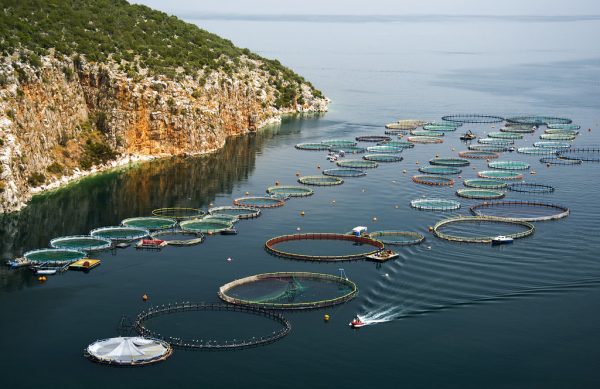
Relations between the Greek-Spanish fish farming industries
Greek companies in the sector have a consistently strong presence at the large, world-wide industry exhibition Seafood Expo Global, the European edition of which has been slated to place in Barcelona since 2022. This year the exhibition takes place between April 25-27, at the international exhibition center of Barcelona (Fira Gran Vía) and approximately 20 Greek exhibitors are expected to participate.
More generally, as concerns relations between the fish farming sectors of Greece and Spain for many years, as noted, there has been a particularly strong tightening of relations, mainly as a result of the major reorganizations that occurred in the Greek fish farming sector. More specifically, in the field of fish farming, the Greek group Nireas had acquired in 2007, the important Spanish company Predomar, which has facilities in Almeria. In the same year, Nireas had acquired 33.34% of the Norwegian group MARINE FARMS ASA which produces sea bream and sea bass at its facilities in Spain.
Furthermore, according to information from the Greek embassy, in 2008 the Greek Andromeda Fish Farming Group acquired Grupo Acuimar Alimentación, which was subsequently renamed Andromeda Ibérica, while in 2009 it acquired the Niordseas company, based in Barcelona. In 2010, Andromeda acquired the company Piscimar, which owns the largest fish hatchery and farm in Greece, as well as specialized facilities for breeding Mediterranean fish, mainly sea bream and sea bass. 
Today, the Spanish Avramar group based in Castellón, Valencia, which was created in January 2021 with the renaming of the Andromeda group, owns the merged Greek fish farming groups Andromeda, Nireas and Selonda, as well as the Spanish group Perseus (specializing in fish feed ), while the major international investment funds AMERRA Capital (USA) and Mubadala Investment Company (the second largest sovereign wealth fund of Abu Dhabi) also participate in its capital. The Avramar group has a total production volume of more than 70,000 tons and a presence in more than thirty countries, and is a leading sea bass and sea bream brand worldwide and the largest fish producer in the Mediterranean, supported by modern production facilities in Greece and Spain, in which additional investments of EUR 25 million are being made in 2021. AVRAMAR employs more than 2,300 persons in Greece and Spain and trades four Mediterranean species (sea bass, sea bream, and common pandora) in thirty countries.
In addition, the Greek fish farming group Galaxidi Marine Cultures S.A. in 2019 founded a subsidiary company with the name “ACUIDELTA SL” based in the L ́Ametlla de Mar area, in Tarragona, with the aim of producing, processing, marketing and distributing marine Mediterranean fish in Spain, with a planned production capacity of 2,000 tons per year. In 2021 the company started the production of sea bream and sea bass, while by the end of 2021 it made investments of about 3 million euros for the construction of floating facilities and by the end of 2022 it was expected to make investments of about 5 million euros for the construction of a modern fresh fish packing house, floating facilities, as well as additional floating and land-based facilities.
In addition, in 2022 the Spanish fish farming group from Galicia (Vigo) and a key supplier of the country’s largest supermarket chain, Mercadona, bearing the Grupo Profand brand, acquired a majority stake in the major Greek fish farming group, Kefalonia Fish Farms, which specializes in breeding and fish distribution through four fish farming units that it has and with a presence in Mediterranean countries.
Latest News

New Exposé by Domumento Reveals Nefarious Triangular Link of ‘Black Money’ with New Democracy, Blue Skies, & Truth Team
The latest exposé by the Documentonews.gr news site lays bare what appears to be a surreptitious path of indirect financing of ND through the business sector—transactions that, as widely understood, rarely occur without expectations of reciprocal benefit

PM Meloni Meets Vice President Vance in Rome Signalling Optimism on Ukraine Talks
Meloni emphasized the strength and strategic value of the Italy-U.S. partnership.

Airbnb: Greece’s Short-Term Rentals Dip in March Amid Easter Shift
Data from analytics firm AirDNA shows that average occupancy for short-term rentals dropped to 45% in March, down from 49% the same month last year.

Easter Week in Greece: Holy Friday in Orthodoxy Today
At the Vespers service on Friday evening the image of Christ is removed from the Cross and wrapped in a white cloth

Meloni and Trump Meet in Washington, Vow to Strengthen Western Ties
“I am 100% sure there will be no problems reaching a deal on tariffs with the EU—none whatsoever,” Trump stressed.

ECB Cuts Interest Rates by 25 Basis Points in Expected Move
The ECB’s Governing Council opted to lower the deposit facility rate—the benchmark for signaling monetary policy direction—citing an updated assessment of inflation prospects, the dynamics of underlying inflation, and the strength of monetary policy transmission.

Current Account Deficit Fell by €573.2ml Feb. 2025: BoG
The improvement of Greece’s current account was mainly attributed to a more robust balance of goods and, to a lesser extent, an improved primary income account

Hellenic Food Authority Issues Food Safety Tips for Easter
Food safety tips on how to make sure your lamb has been properly inspected and your eggs stay fresh.

Greek Kiwifruit Exports Smash 200,000-Ton Mark, Setting New Record
According to data by the Association of Greek Fruit, Vegetable and Juice Exporters, Incofruit Hellas, between September 1, 2024, and April 17, 2025, kiwifruit exports increased by 14.2%.

Easter Tourism Boom: Greece Sees 18.3% Surge in Hotel Bookings
Among foreign markets, Israel has emerged as the biggest growth driver, with hotel bookings more than doubling—up 178.5% year-on-year.

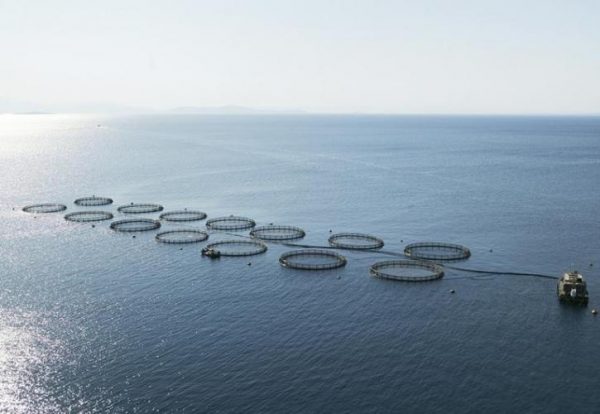






![Πλημμύρες: Σημειώθηκαν σε επίπεδα ρεκόρ στην Ευρώπη το 2024 [γράφημα]](https://www.ot.gr/wp-content/uploads/2025/04/FLOOD_HUNGRY-90x90.jpg)





![Airbnb: Πτωτικά κινήθηκε η ζήτηση τον Μάρτιο – Τι δείχνουν τα στοιχεία [γράφημα]](https://www.ot.gr/wp-content/uploads/2024/07/airbnb-gba8e58468_1280-1-90x90.jpg)














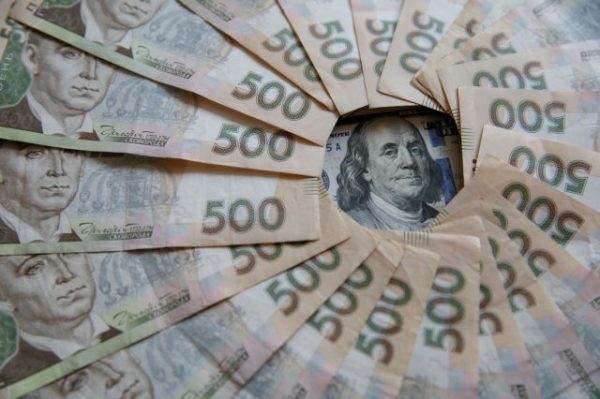


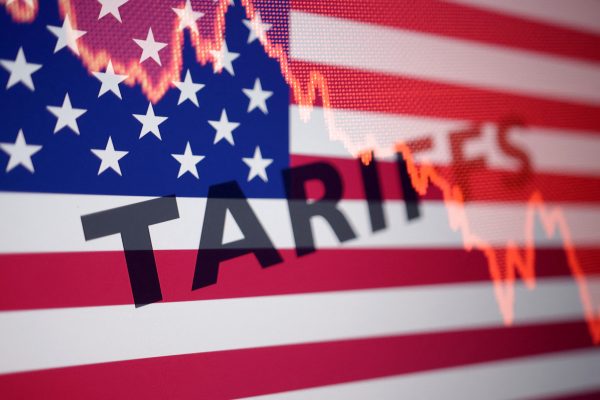









 Αριθμός Πιστοποίησης
Αριθμός Πιστοποίησης